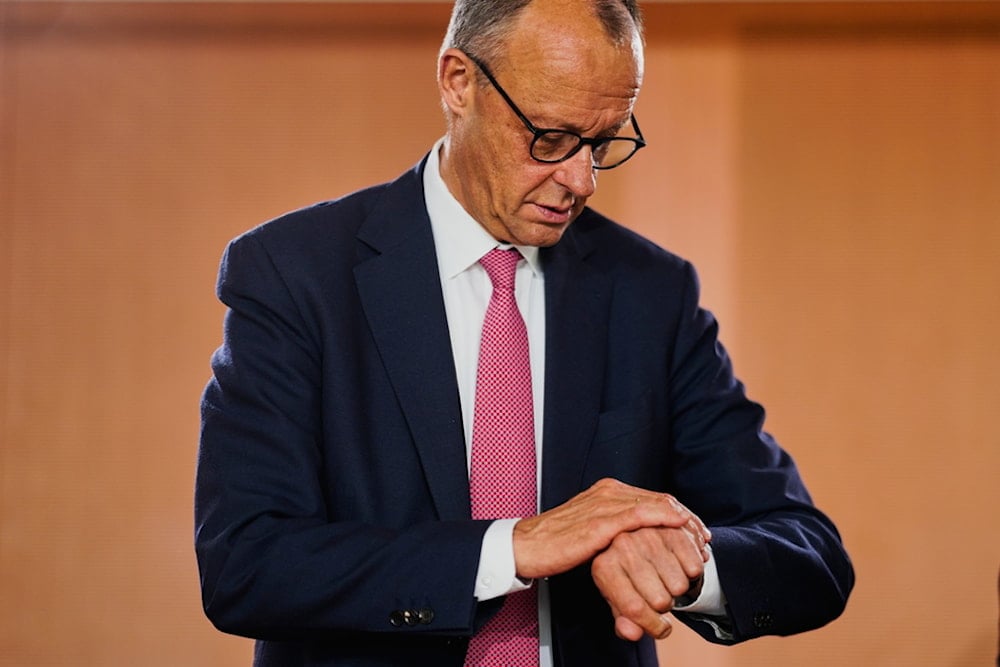Merz faces sharp drop in public support just two months into term
Chancellor Friedrich Merz is facing growing public discontent just two months into his term, with polls showing a majority of Germans dissatisfied with both his leadership and the coalition government.
-

German Chancellor Friedrich Merz looks at his watch as he arrives for the cabinet meeting at the chancellery in Berlin, Germany, Wednesday, July 23, 2025. (AP Photo/Markus Schreiber)
Just two months into his tenure, German Chancellor Friedrich Merz is grappling with a sharp uptick in public dissatisfaction, according to a new INSA poll commissioned by Bild newspaper. The results show growing discontent not only with the newly formed coalition government but also with Merz's leadership specifically.
Conducted from July 21 to 25 among 1,203 Germans, the poll reveals that 58% are unhappy with the government, up from 44% in early June. Merz's own approval has also dropped, with 56% dissatisfied with his job performance, compared to 45% last month. Only 31% said they were satisfied, down from 36%.
Fractured Mandate
Merz took office on May 6, following a narrow parliamentary victory after the February 23 snap federal election. His CDU/CSU bloc led the vote with 28.6%, forming a coalition with the center-left SPD, which had just recorded its worst electoral result in history at 16.4%. The far-right AfD surged to second place with a record 20.8%, signaling a dramatic shift in Germany's political landscape.
While the CDU-SPD alliance was intended to stabilize governance, Merz's administration has been mired in internal tensions and mounting public unease. Analysts point to several factors fueling the backlash:
- Merz's decision to support debt-financed military and infrastructure spending has alienated fiscal conservatives who saw this as a betrayal of the CDU's traditional economic platform.
- Merz has come under fire for working with the AfD on a migration vote, breaking a long-standing political taboo and sparking outrage even within his own party.
- His government holds only a slim majority, and early parliamentary setbacks, like failing to secure a majority in the first chancellor vote, have exposed deep fractures within his ranks.
- Critics accuse Merz of ambitious rhetoric without effective follow-through, particularly on domestic reforms and economic recovery. His abrupt reversal on the constitutional debt brake and unclear social policies have further dented credibility.
- As the AfD continues to grow in popularity, Merz's leadership is increasingly seen as unable to contain the far right or present a coherent alternative.
According to a separate YouGov poll, over 65% of Germans describe themselves as unhappy with the Merz government. Taken together, the polling suggests that Merz's attempts to balance conservative orthodoxy, coalition compromise, and rising populism have not only fallen short, they may be accelerating the erosion of public trust in his leadership.
Read more: 'Israel' is doing the dirty work for us: Germany’s Merz

 3 Min Read
3 Min Read










